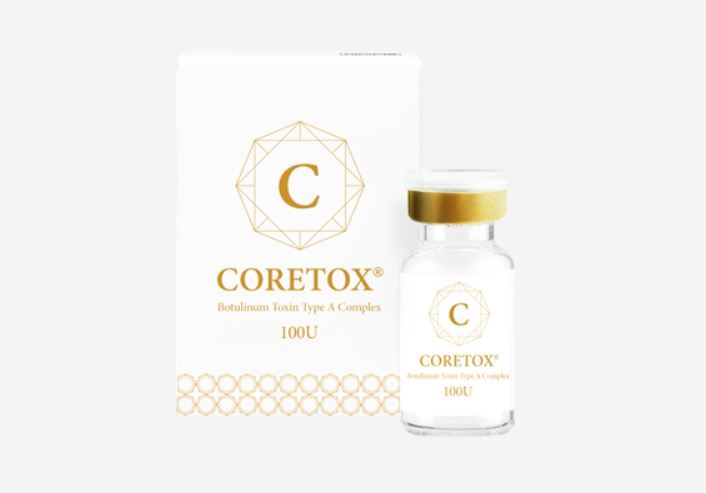 |
Coretox (Medytox) |
After most of its Meditoxin units were stripped of its sales licenses, Medytox is at risk of losing two more of its products’ licenses as the Ministry of Food and Drug Safety moves to penalize their illegal sales in China.
On Monday evening, the ministry issued an announcement that it has determined the 50, 100, 150 and 200 units of Meditoxin and Coretox violated the Pharmaceutical Act by trading overseas without the agency‘s permission to leave the country.
Meditoxin 50, 100 and 150 units had already been revoked of its licenses in Korea on June 25 for erroneous paperwork that violated ministry rules.
After losing the cash cow products, Medytox’s remaining life lines were Meditoxin 200 unit, Coretox and Innotox. Now the company faces being thrown into even more treacherous business conditions.
Following the ministry‘s announcement on Monday, Medytox refuted the government agency’s order to recall all botulinum toxin products traded in China via unauthorized channels.
The Korean BTX maker claims that the ministry’s order is invalid, as “precedents from the Supreme Court have exempted pharmaceutical goods manufactured for export purpose from Pharmaceutical Act.”
The Ministry of Food and Drug Safety is adamant that the Pharmaceutical Act applies in this case as the Medytox products were never approved by the China Food and Drug Administration.
The points that the ministry found faults with are that the products did not gain the necessary approvals to leave the country; failed to include Korean descriptions on its packaging, which is normally required; and the company contracted an unauthorized seller.
The state agency has initiated steps to revoke licenses for products that have bent the rules and has ordered a tentative cessation of their manufacturing and sales. Medical professionals were advised to refrain from using the products.
Medytox said it will take the matter to a local court to nullify the ministry‘s order.
The case of Medytox’s unlawful sales in China came to the surface when local media outlet Dong-a Ilbo published an exclusive report on Oct. 7 about the company‘s legal brawl with a distributor who apparently had failed to pay for goods.
Medytox had sued a distributor at Seoul Seongdong Police Station seeking a compensation of 10.5 billion won ($9.1 million). The distributor countersued Medytox for neglecting to forewarn the risks of trading medical products that have not been approved by the Chinese drug authorities, which had cost it as Chinese retailers belatedly refused to pay.
Medytox’s friction with the distributor has directed a spotlight onto the company’s history of botulinum toxin sales in China, which had reportedly been ongoing for at least four years since 2016.
The China Food and Drug Administration currently acknowledges only two BTX goods in its administrative regions -- Allergan’s Botox and Lanzhou Institute of Biological Products’ Hengli -- which makes the country a vast, untapped market for botulinum toxin makers.
As of September, Meditoxin was approved in 33 countries, but not China. The fastest Korean botulinum toxin to penetrate the Chinese aesthetic BTX market is anticipated to be Hugel’s Botulax, as it awaits imminent sales approval from the CFDA.
Regardless of the absence of any approved Korean BTX product in China, Korea Customs Service data from July indicated that in the second quarter of 2020, Korean toxin products headed to China made a 51.7 percent on-year increase, reaching $39.7 million.
A KCS official explained to The Korea Herald that the toxins category comprises of diverse toxins other than the botulinum toxin.
“We cannot say that the figure entirely represents botulinum toxin,“ the official said.
September is the peak season for toxin products, and the buoyed sales in China will only continue to increase, Hana Financial Group’s analyst Sun Min-jeong wrote in her equity report dated Oct. 15. Analyst Sun wrote that she anticipates a full-fledged botulinum toxin export jump in China during the fourth quarter.
By Lim Jeong-yeo (
kaylalim@heraldcorp.com)








